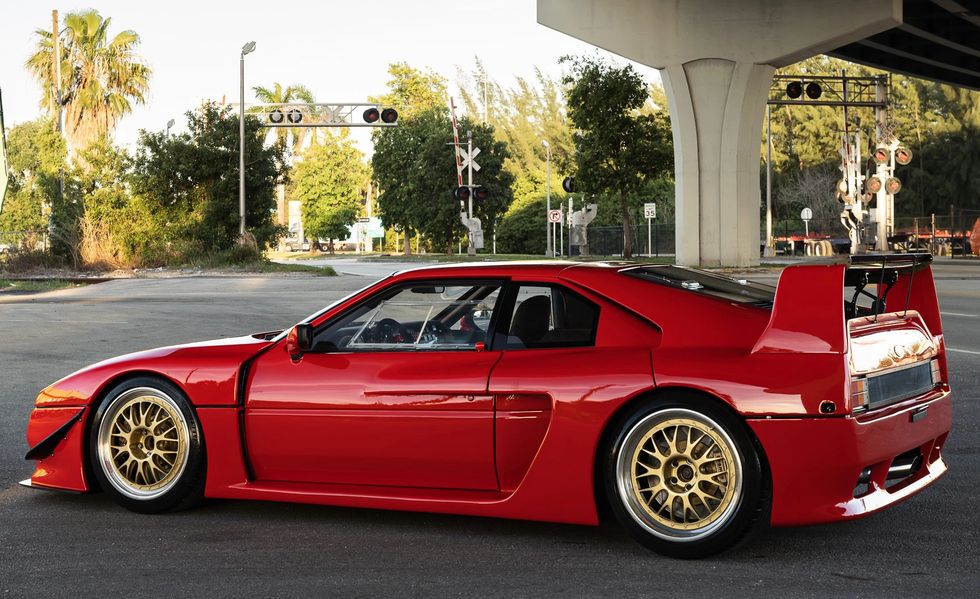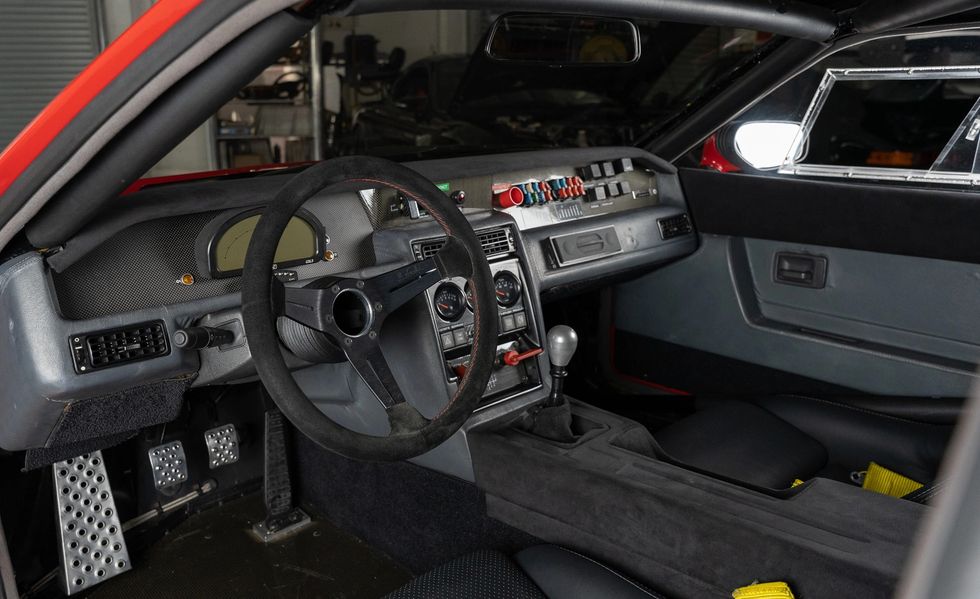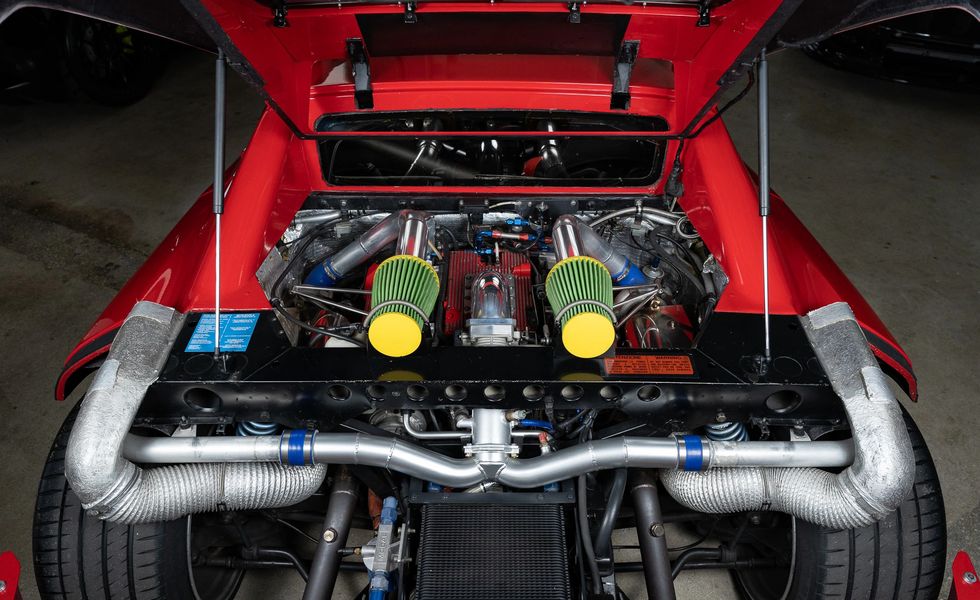- The Venturi 400 Trophy was created for an early-1990s single-marque racing series in France.
- It features Kevlar composite bodywork and a mid-mounted 3.0-liter V-6 engine.
- This example has been modified for the street and is up for auction in Florida where, with a week to go before the August 1 auction end date, bidding is at $101,000.
The Ferrari F40 has never been within reach of the ordinary collector, but over the past few years values have come on boost and surged into multimillion-dollar territory. As an alternative, are you looking for a race-bred, twin-turbo, mid-engined exotic with carbon-Kevlar bodywork, but with a budget that doesn’t stretch to seven figures? Here’s an unusual but compelling blend of French racing élan and golden-age Japanese performance tuning.
Today’s pick at Bring a Trailer (which, along with Car and Driver, is part of Hearst Autos) is a heavily modified example of a Venturi 400 Trophy. Much explanation about what exactly a Venturi is will be required shortly, but first, just drink in the details. Outrageous composite bodywork. Performance parts from BBS, Brembo, Ohlins, HKS, and Recaro. A rear clamshell hood that opens to reveal a twin-turbo V-6 good for 408 horsepower in factory trim and more like 500 horsepower here. Next, you may notice the sliding Lexan windows and a dashboard full of exposed fuses. This car is far more obscure than Ferrari’s 40th birthday present to itself, but it is every inch the exotic.
Venturi was founded in the mid-1980s by two French engineers, former employees of the Heuliez coachworks. For road cars, Venturi’s peak was the 400 GT, an extremely limited-production sports car that might be almost unknown by the larger public had it not appeared digitally in the racing game Gran Turismo 2.
The 400 GT was a roadgoing version of a race car: the 400 Trophy. One of the earliest successes of French racing promoter Stéphane Ratel—instrumental in the creation of GT2 and GT3 racing—the 400 Trophy was a gentleman-racer series intended to be a French twist on similar one-make racing series fielded by Porsche or Ferrari. Just over 70 cars were built, but the series was a success, running over four seasons.
This example is chassis number 50, though it has come a long way from the days of Trophy racing. It raced in the 1992 and 1993 seasons but was then shipped to Japan and converted for road use. The process did not involve toning down the performance of the racing chassis but rather extracting even more out of it.
A Feast for the Imagination
The car was sent to Tokyo to be tuned, with HKS GT-SS turbochargers and MoTec engine management. Japan’s capital is of course a supercar haven, with Yokohama’s Daikoku Parking Area becoming a church of speed on Sunday morning. This example, however, was built for early-morning weekend running of the tunnels and canyons of Hiroshima, hurtling through those relatively empty roads at speed. No radio, no distractions, just the almighty hiss of the twin turbochargers and the surprising aggression of a well-tuned 3.0L PRV V-6 snarling towards redline.
The roadgoing 400 GT is as rare as you’d like, with just 15 examples made. The driving experience of those cars is not supposed to be the best, with questionable boutique supercar company build quality and snatchy carbon brakes.
By comparison, this 400 Trophy was at first shaken down and reworked by a racing team over several seasons, then built up as a street car by a Tokyo tuning specialist during the time when the elusive Mid Night Racing Team was in their heyday. It’s a blend of two seemingly disparate worlds of automotive enthusiasm, but combines the best of both of them.
Catching sight of an F40 in traffic is a bucket list spot, but Ferrari did built more than 1300 of them. There are only a handful of Venturis in the US at present, and probably only one of them like this. With eight days to go, the high bid is at $101,000. Maybe don’t think of this 400 Trophy as the poor man’s F40, but as something even rarer and more special to own and drive than the ultimate Ferrari.

Contributing Editor
Brendan McAleer is a freelance writer and photographer based in North Vancouver, B.C., Canada. He grew up splitting his knuckles on British automobiles, came of age in the golden era of Japanese sport-compact performance, and began writing about cars and people in 2008. His particular interest is the intersection between humanity and machinery, whether it is the racing career of Walter Cronkite or Japanese animator Hayao Miyazaki’s half-century obsession with the Citroën 2CV. He has taught both of his young daughters how to shift a manual transmission and is grateful for the excuse they provide to be perpetually buying Hot Wheels.



